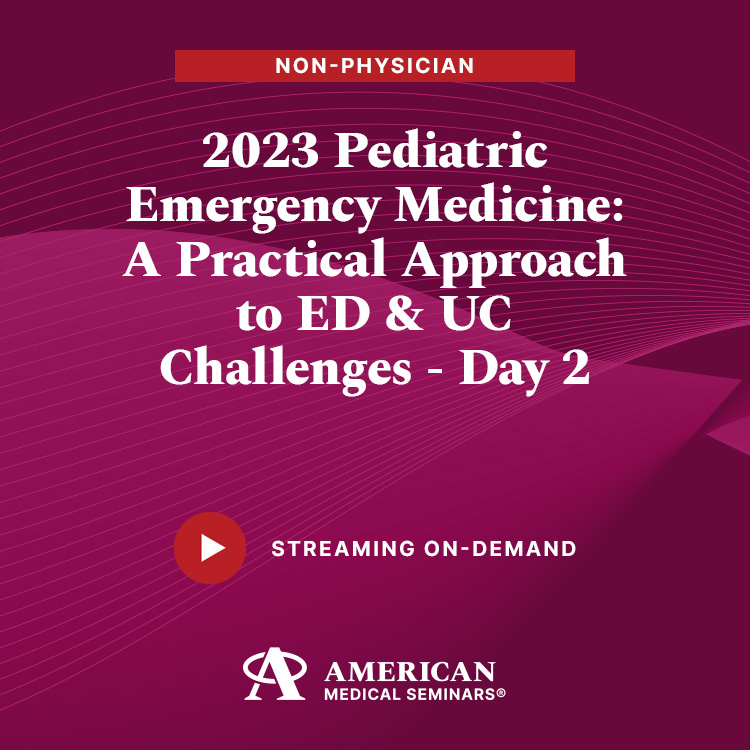Title: Pediatric Emergency Medicine: A Practical Approach to ED & UC Challenges – Day 2 (Non-Physician)
Faculty: Robert A. Belfer, M.D.; Josh Belfer, M.D.; and Jeffrey A. Seiden, M.D., F.A.A.P
Release Date: 7/1/2023 Expiration Date: 7/1/2026
Day 2
Life-Threatening Pediatric Infections (Belfer R.)
Upon completion of this session, using national evidence based medicine sources including Cochrane Collaboration and published guidelines from sources including the American
Academy of Pediatrics, the participant should be able to: EBM, GL, COMP
- Conclude that as newer immunizations eradicate many serious infections, we are still faced with certain pathogens that can cause severe morbidity and mortality.
- Recognize, diagnose and manage the following diseases:
a. Toxic Shock Syndrome;
b. Meningococcemia;
c. Rocky Mountain Spotted Fever;
d. Kawasaki Syndrome. - Develop an approach to the patient who presents with fever and a rash.
Non-Traumatic Surgical Abdominal Emergencies (Belfer R.)
Upon completion of this session, using national evidence based medicine sources including Cochrane Collaboration and published guidelines from sources including the American Academy of Pediatrics, the participant should be able to: EBM, GL, COMP
- Recognize pediatric abdominal processes that require surgical intervention.
- Formulate and prepare initial emergency room management of specific abdominal surgical emergencies.
Pediatric Sepsis (Belfer R.)
Upon completion of this session, using national evidence based medicine sources including Cochrane Collaboration and published guidelines from sources including the American Academy of Pediatrics, the participant should be able to: EBM, GL, COMP
- Describe the importance of early recognition, diagnosis and treatment of sepsis and septic shock in children, resulting in improved outcomes
- Outline protocols for IV fluid, IV antibiotic and IV vasoactive medications treatment for sepsis and septic shock.
Blunt Abdominal Trauma in Children (Seiden)
Upon completion of this session, using evidence based medicine and published guidelines, the
participant should be able to: EBM, GL, COMP
- Recognize injury mechanisms and clinical findings that are characteristic of solid organ
injury and hollow viscus injury in children. - Integrate the role of various laboratory and radiologic tests in the diagnosis of solid organ injury and hollow viscus injury in children.
- Develop and employ appropriate management strategies for children with significant intraabdominal injuries.
- Appraise recent data regarding the utility of focused abdominal sonography in trauma (FAST) in pediatric trauma.
Diagnosis and Misdiagnosis of Appendicitis in Childhood (Seiden)
Upon completion of this session, using evidence based medicine, the participant should be able to: EBM, COMP
- Review the pathophysiology of appendicitis.
- Associate the pathophysiology of appendicitis with the signs and symptoms.
- Analyze various diagnostic approaches to appendicitis in childhood.
- Criticize the care provided in several cases of appendicitis missed at the time of initial ED evaluation.
- The receipt for any incentive-associated purchase will designate the value of the gift card separately from the cost of the learning activity.
- This incentive may have implications on your tax reporting obligations. Any reimbursed amount must be declared as personal income for tax purposes.

